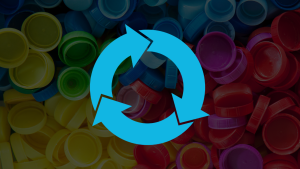Governments encouraged to expand procurement of products with PCR
From libraries to court houses to the curb, governments purchase a lot of plastic goods, including bags, collection carts or containers, and even outdoor furniture. So far, Rubinstein has observed that many governments default to products made with virgin resin, or don’t pay attention to the recycled content of the supplies.
Asking these bulk-buying customers to ramp up how much PCR content is in what they purchase could help ensure recycling and resin reuse continue. “If we’re ignoring them, and not encouraging them to play an active role in buying products with post-consumer recycled content, we are undermining the ability of the domestic recycling industry to thrive,” Rubinstein told Waste Dive.
Increasing PCR purchasing complements the original Demand Champions mission of boosting PCR use in the manufacturing of “work in progress” items such as pallets and crates. Started in 2017, it asked companies to voluntarily report to the Association of Plastic Recyclers (APR) each year with updates on the purchase or production of products containing PCR. The growing list of companies have worked with APR to incorporate more of the recycled resin, like in roll carts with bulky rigid plastic components.
While private sector participants agree to start improvements right away, any government entity can sign up for the program at one of two levels. Full “champions” can commit to immediately buying products with PCR, while “advocates” promise to start incorporating those choices within a year.
Rubinstein said she pitched the idea of the “advocate” level of commitment because pivoting to products made with PCR can be complicated. While investigating what the program would look like, she learned that navigating government chains of command could take time. Employees interested in buying PCR products, for example, aren’t always the people in charge of making those purchases or vetting options on the market. Depending on the law, some governments can’t simply change who they write checks to as they may have to bid on supplies or work within existing contracts.



